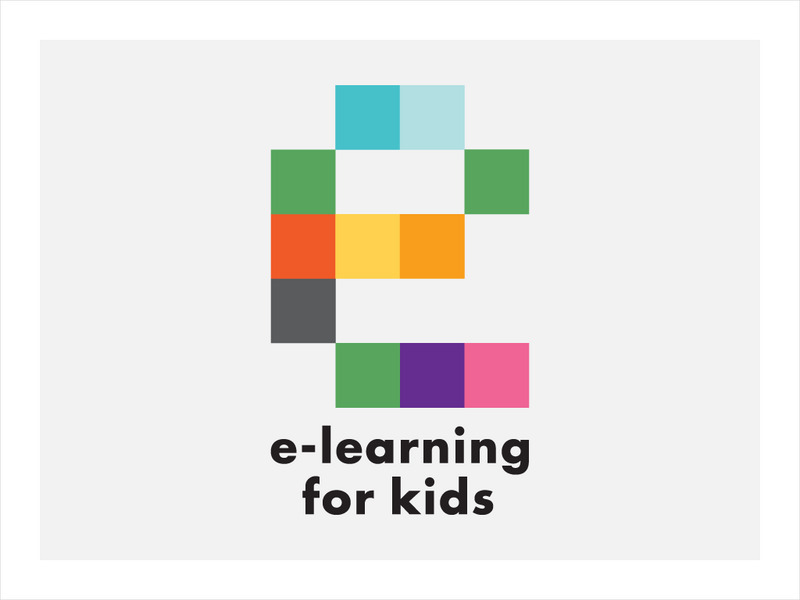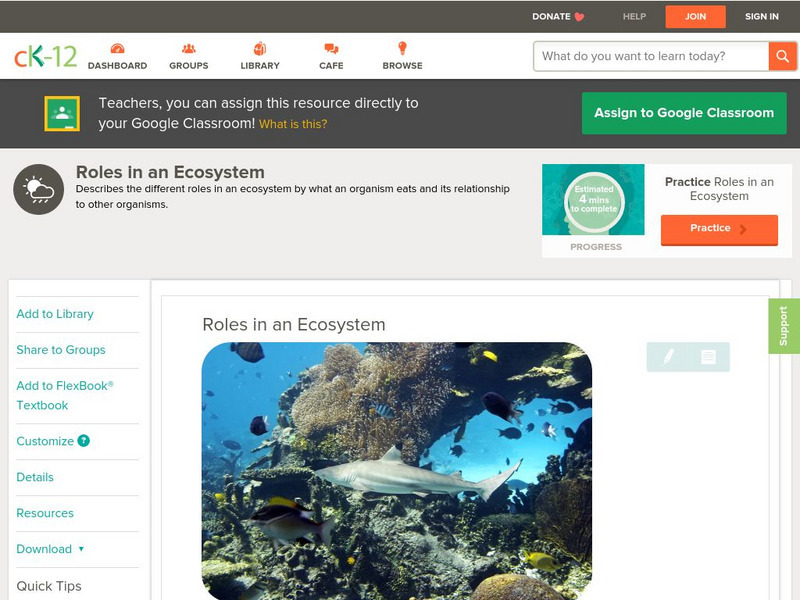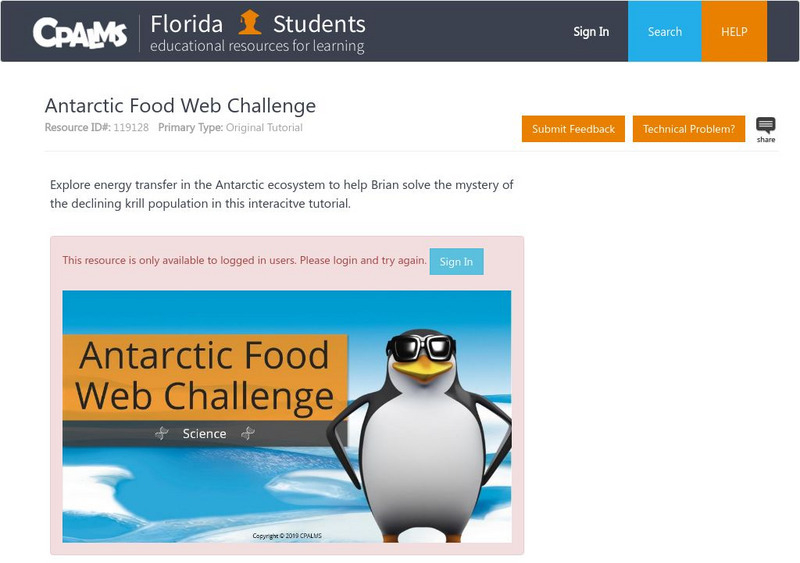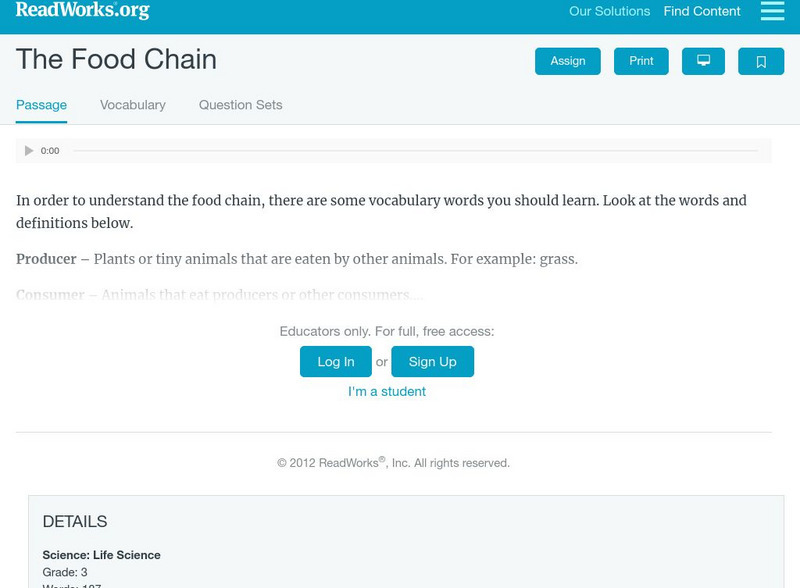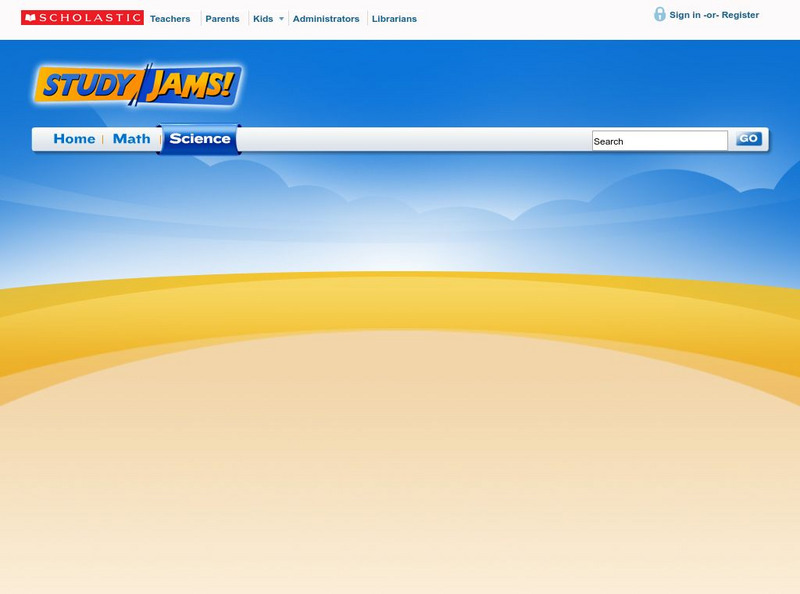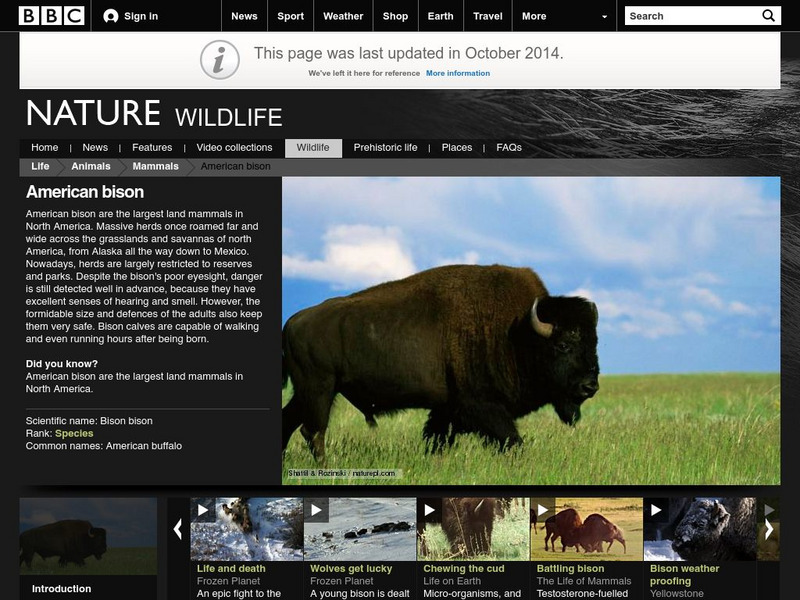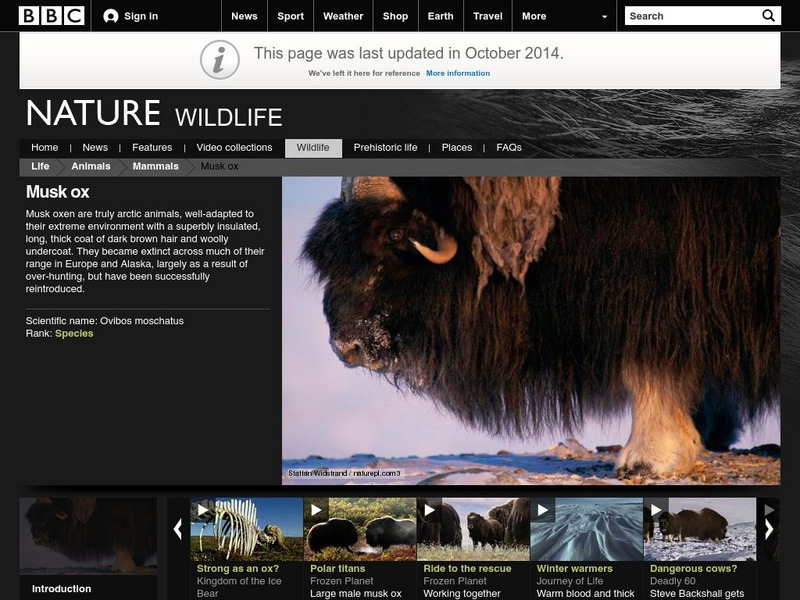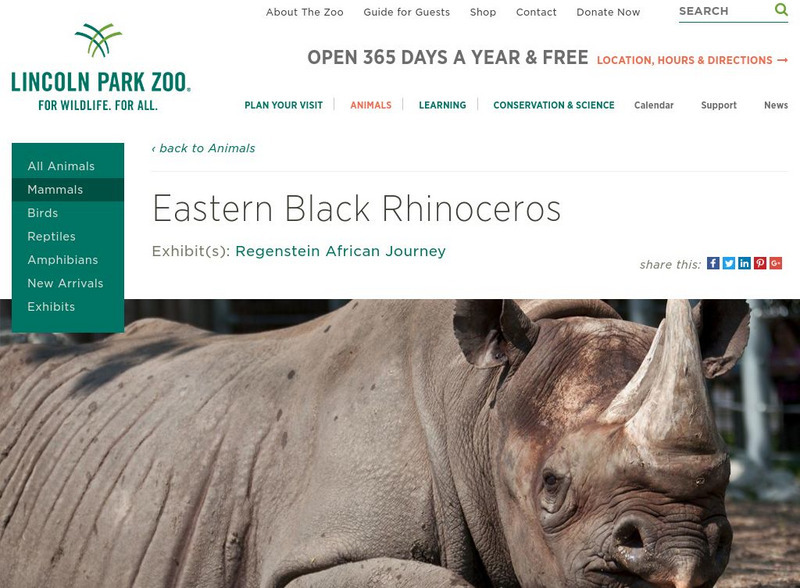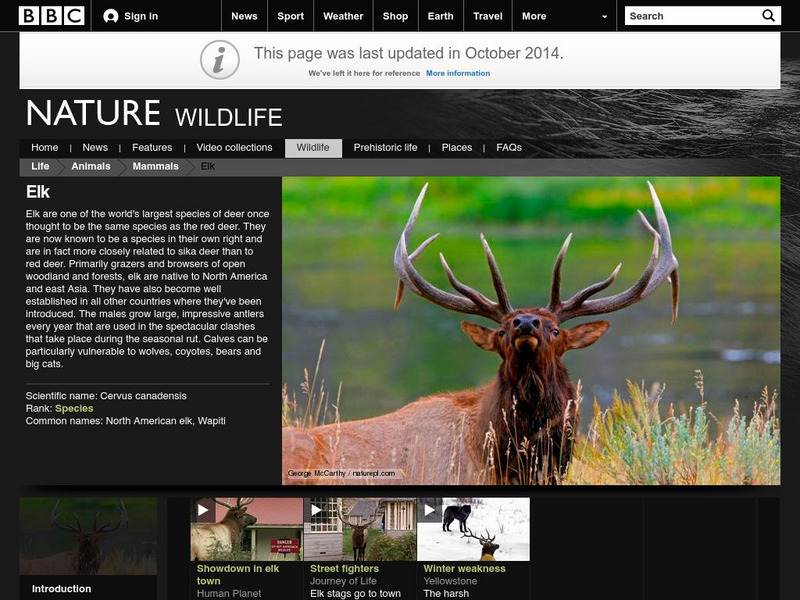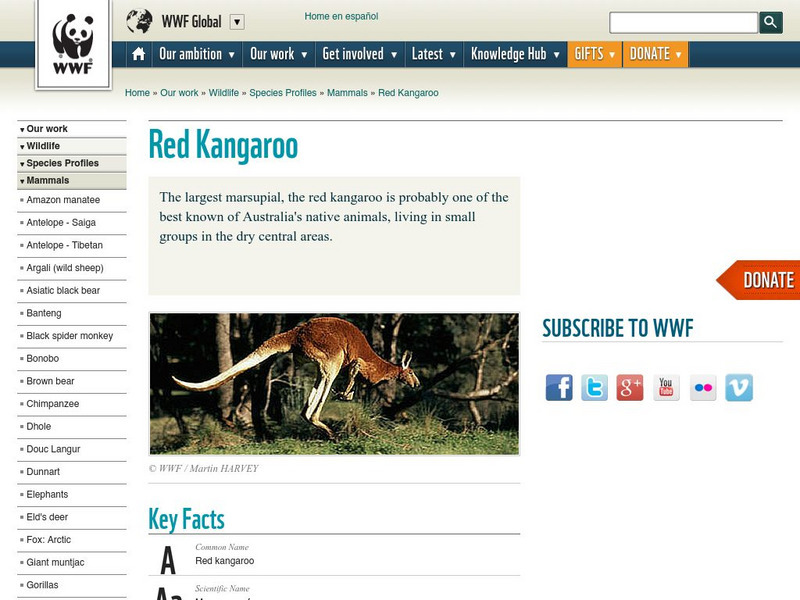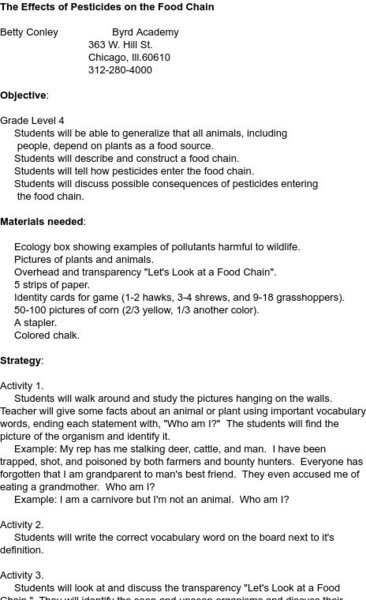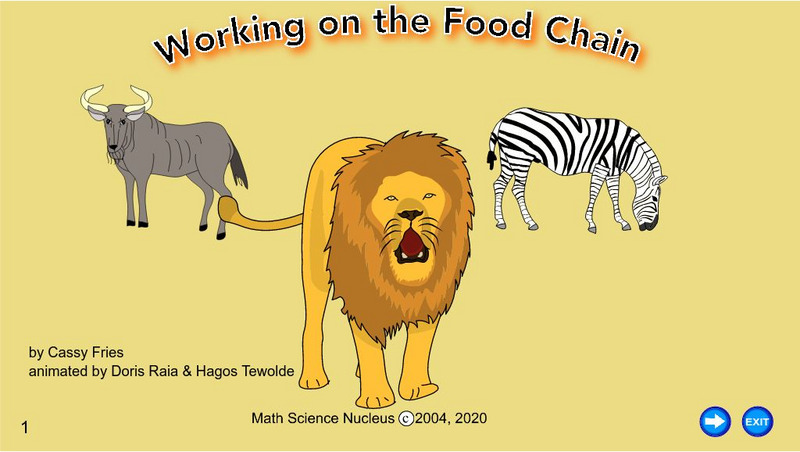E-learning for Kids
E Learning for Kids: Science: Christmas Island: What Do Animals Eat?
This lesson teaches students the three different types of diets animals may have - herbivore, carnivore, and omnivore.
CK-12 Foundation
Ck 12: Earth Science: Roles in an Ecosystem
[Free Registration/Login may be required to access all resource tools.] Describes the different roles in an ecosystem.
CPALMS
Florida State University Cpalms: Florida Students: Antarctic Food Web Challenge
Discover how energy flows as part of a food web. Identify the ultimate source of energy for organisms on Earth.
Read Works
Read Works: The Food Chain
[Free Registration/Login Required] An informational text explaining important vocabulary involving the food chain. A question sheet is available to help students build skills in reading comprehension.
Planet Pals
Planet Pals: The Food Chain
Omnivores, herbivores and carnivores are waiting for you. The food chain comes to life at this friendly site.
Scholastic
Scholastic: Study Jams! Science: Ecosystems: Food Chains
A video and a short multiple-choice quiz on food chains that explains how energy flows through the chain, beginning with plants.
The BIG zoo
The Big Zoo: Hippopotamus (Hippopotamus Amphibius)
This site provides a general overview of the hippopotamus. Content takes a look at what this animal eats, where it lives, who its predators are, and more. Several audio and video clips are also available.
The BIG zoo
The Big Zoo: Dromedarian Camel (Camelus Dromedarius)
This site provides a general overview of the dromedary camel. Content explores what this animal eats, its desert habitat, existing social structure, and more.
Smithsonian Institution
National Museum of Natural History: Muskox
This site takes a very brief look at the muskox as an arctic creature. Several photographs are also provided.
BBC
Bbc: Nature Wildfacts: American Bison
Use this site to learn some amazing facts about the American Bison and their close brush with extinction.
Lincoln Park Zoo
Lincoln Park Zoo: Black Rhinoceros
Provides a detailed description of black rhinoceros. Information offered ranges from their physical description to special adaptations that they have.
World Wildlife Fund for Nature
World Wildlife Fund: Red Kangaroo
This resource provides information about red kangaroos.
CK-12 Foundation
Ck 12: Life Science: 12.17 Consumers and Decomposers
Learn the difference between consumers and decomposers in the ecosystem.
Science and Mathematics Initiative for Learning Enhancement (SMILE)
Smile: The Effects of Pesticides on the Food Chain
Lesson plan to construct and explain a food chain. Includes games and activities to teach and reinforce concepts.
Science and Mathematics Initiative for Learning Enhancement (SMILE)
Smile: Teeth Identification in Omnivores, Herbivores and Carniv
For this lesson plan, students make puppets out of paper bags and use corn to give their animal (dinosaur, raccoon, etc.) the correct type of teeth based on the animal's diet.
Other
Wikipedia: Simple English Wikipedia: Herbivores
An easy-to-read entry on herbivores which explains not only what herbivores are, but also the different kinds of herbivores and their diets.
Natural History Museum
Natural History Museum (Uk): What Dinosaur Are You?
In this activity, the user will answer eleven quiz questions to determine whether they would be considered a carnivore or a herbivore.
Other
My Science Box: Food Chains
Students will use a card sorting activity to construct a food chain and identify the role of organisms within that chain. The cards represent different individuals in an ecosystem and will help students begin to understand the concepts...
ClassFlow
Class Flow: Carnivore Picnic
[Free Registration/Login Required] This flipchart provides some examples to help distinguish between a carnivore, herbivore, and omnivore.
Math Science Nucleus
Math/science Nucleus: Food Chain Animation
This animation discusses the food chain in a storybook format. The chain is described as a cycle and both herbivores and carnivores are discussed.
ClassFlow
Class Flow: Food Chains
[Free Registration/Login Required] Through this flipchart students will be able to summarize and organize simple food chains.
The BIG zoo
The Big Zoo: Dama Gazelle
Here at theBigZoo.com you will find an overview of the Dama Gazelle. Content includes a focus on what this animal eats, where it lives, what are its natural predators, its social structure, and reproduction. A video clip is also included.


